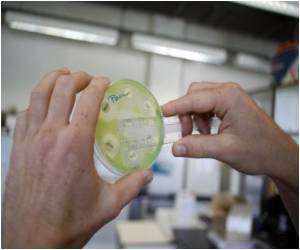The intricate pathways involved in activating T cells, which are the body's most important disease-fighting cells finds researchers including two of Indian-origin.

The channel is the portal through which calcium enters T cells from the blood stream, an action essential for the T cell's survival, activation, and ability to fight disease.
Patrick Hogan and Anjana Rao, Ph.D.s, are senior authors on the paper and Sonia Sharma and Ariel Quintana, Ph.D.s, are co-first authors.
Senior author Patrick Hogan describes the discovery as another important step in understanding the overall functioning of T cells - knowledge from which new, more precisely targeted drugs to treat diseases ranging from cancer to viral infections can emerge.
He said that they wanted to understand the basic machinery inside a T cell, which would enable them to target the specific pressure points to turn up a T cell response against a tumour or virus or to turn it down in the case of autoimmune diseases.
Sharma said that they found that the septin protein is a very strong regulator of the calcium response, which is essential for activating immune cells.
Advertisement
To the research team's surprise, the septins were forming a ring around the calcium channel.
Advertisement
Sharma added that they believe that the septins are choreographing the interaction of these two proteins that are important in instigating the immune response.
The study has been published in the scientific journal Nature.
Source-ANI









